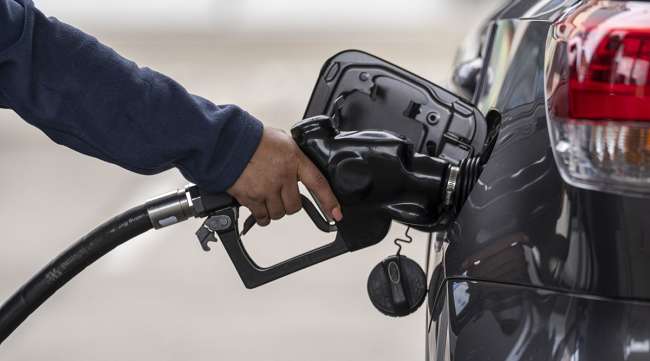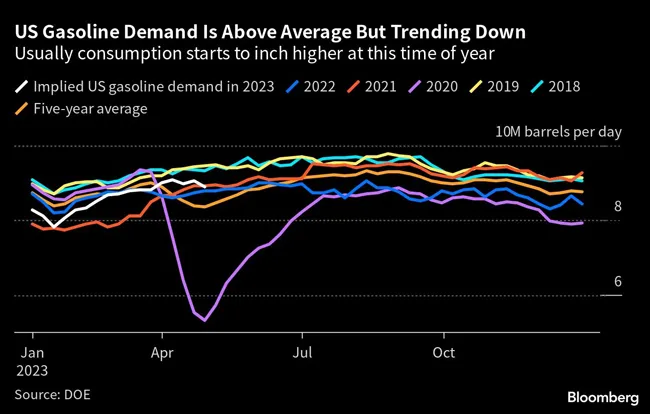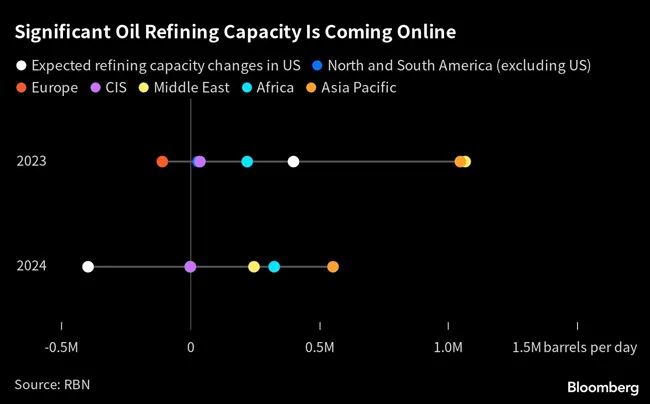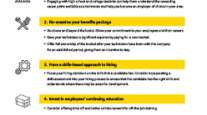Fuelmakers Hoping for Higher-Than-Expected Demand in Summer

[Stay on top of transportation news: Get TTNews in your inbox.]
The global fuelmaking industry is pinning its hopes for summer demand on American drivers. That’s an iffy bet.
Although U.S. gasoline usage appears to be exceeding year-ago levels as cheaper prices at the pump encourage households to hit the road, cracks have started to emerge in the world’s biggest economy.
Implied U.S. gasoline demand plunged nearly 900,000 barrels a day in the latest weekly report — the biggest drop this year — and the fast-approaching driving season isn’t looking like one for the record books, either. U.S. gasoline consumption will total 9.09 million barrels a day between June and August, according to government forecasts, up slightly year-on-year but still down more than 6% from pre-pandemic rates.
“We are not seeing the fireworks that summer typically brings,” said Mukesh Sahdev, head of the downstream practice at Rystad Energy.

Why then do many international refiners see the U.S. gasoline market as their best chance to sop up supply? Because it’s even worse in many other parts of the world. Gasoline consumption in major consumer Indonesia was below 2019 levels this month, and Southeast Asian nations are importing less of the fuel seasonally. At the same time, demand for diesel — the other major product churned out by refineries — has been slipping across the globe.
Margins are already flashing signs of stress. In the U.S., the so-called crack spread — the difference between the price of finished products and the cost of crude — fell by more than 20% in the month of April. Margins have also weakened in Asia and Europe. If demand isn’t sufficient to keep margins afloat, refiners that have enjoyed strong profits in recent years will consider cutting output.
Further dampening the outlook is a batch of new supply coming online. About 2 million barrels a day of global refining capacity is expected to start this year, mostly in the Middle East and China. Even in the U.S., refiners are adding units for the first time in decades after a period of rapid closures during the pandemic. That comes at a time when stockpiles of light distillates — such as gasoline and naphtha — at Asia’s regional oil distribution hub of Singapore are now well above the seasonal average for the last five years.

“We are heading back to a period where global refining capacity will run in excess of global products demand and crude supply for a few years,” Energy Aspects Ltd. analysts Amrita Sen and Christopher Haines wrote in a recent note.
To be sure, there are some glimmers of hope for global refining. In China, fuelmakers have been boosting production to respond to better-than-expected gasoline and jet fuel demand, with more cars running on streets and people traveling by plane. Still, the country’s refinery production is outpacing its consumption of the fuel, with exports currently at the highest rate this year, according to Kpler data compiled by Bloomberg. That’s weighing on global gasoline prices.
Meanwhile, global jet fuel demand is widely expected to approach pre-pandemic levels this year. But jet fuel is a relatively small cut of the oil barrel — only around 10% of crude is turned into jet fuel in the U.S., compared to around 60% for gasoline. This means that even if jet fuel fully recovers, it won’t be able to make up for losses from diesel and gasoline.
Want more news? Listen to today's daily briefing below or go here for more info:




